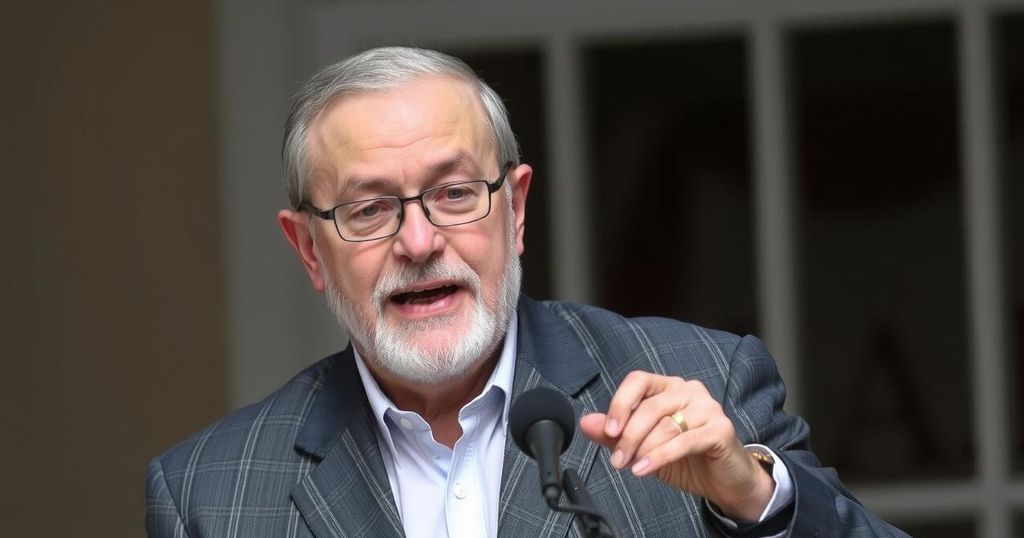Syria’s Interim Leader Outlines Electoral Process Timeline Amid Reconstruction Efforts
Ahmad al-Sharaa, the de facto leader of Syria’s interim government, announced that elections might take up to four years to organize, alongside a proposed three-year timeline for drafting a new constitution. He emphasized rebuilding the country post-Assad and hinted at the dissolution of his group, HTS, in future plans. Al-Sharaa is also actively pursuing international legitimacy and engaging in diplomatic relations, notably with Ukraine and the United States.
The de facto leader of Syria’s newly established interim government, Ahmad al-Sharaa, has indicated that elections in the country could take as long as four years to organize. His statements come after the overthrow of the Assad regime by his group, Hayat Tahrir Al-Sham (HTS), earlier in December. Al-Sharaa emphasized the necessity of preparing the necessary infrastructure and drafting a new constitution, a process he estimates could extend up to three years, before conducting elections. Furthermore, he noted that the ongoing efforts are focused on the re-establishment of the nation rather than mere governance, given the extensive destruction inflicted by the previous regime over the last fifty years. Al-Sharaa has also hinted at the eventual dissolution of HTS, which will be addressed during the upcoming National Dialogue Conference, although a date for this conference has not yet been announced. The new leadership intends to maintain amicable relations with Russia, ensuring its departure aligns with diplomatic standards. Al-Sharaa has been actively engaging in international diplomacy, having met with a Ukrainian delegation and recently receiving communication from U.S. officials regarding the lifting of a bounty on his head. Through these diplomatic initiatives, he is actively seeking international recognition and aiming to distance himself from his former associations with jihadist groups. In his discourse, Al-Sharaa has signified a willingness for cooperation, specifically mentioning the importance of Saudi Arabia’s role in Syria’s future and urging Iran to reassess its regional interventions.
The context surrounding these developments involves the recent changes in Syria’s governance following the overthrow of Bashar al-Assad. Ahmad al-Sharaa, previously affiliated with jihadist factions, has now assumed a leadership position in a transitional government aiming to establish a new political framework for Syria. The assertion of timeframes for elections and constitutional reforms is significant, as it underscores the immediate challenges faced in building a new governmental structure while navigating the complexities of international relations and regional dynamics.
In conclusion, the leadership of Ahmad al-Sharaa signals a pivotal transition for Syria, as the interim government grapples with the herculean task of rebuilding a war-torn nation while establishing a legitimate political framework. His focus on drafting a new constitution and infrastructure preparation emphasizes the need for careful planning as the country looks towards future elections. Furthermore, his diplomatic engagements aim to reshape Syria’s international relations, particularly with nations such as Saudi Arabia and Russia, while distancing from his previous militant associations.
Original Source: www.cnn.com




Post Comment